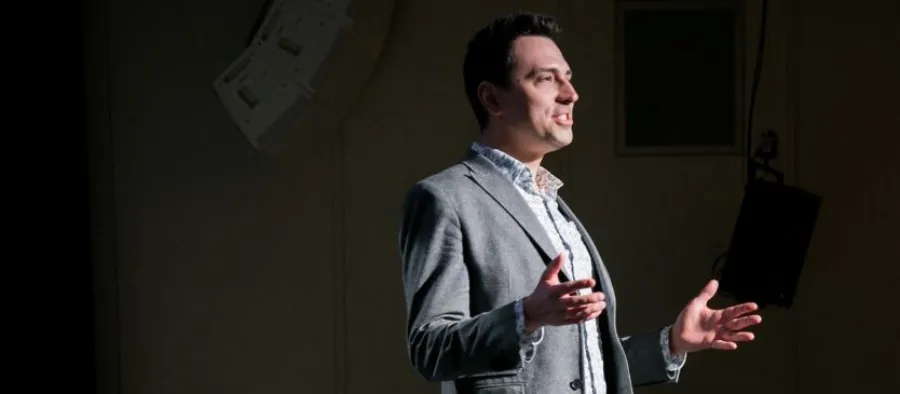- Shows &
Tickets - Classes &
Camps-
-
-
-
Interested in after-school activities for your kids? Explore After School Programs
-
-
-
- Schools &
Educators-
-
- Schools & Educators
Partner with the Alliance Theatre Institute for professional learning for educators and arts-integrated or theater-based instruction for students.
-
Unique Programs
We offer unique programs that use the power of the arts to inspire students, develop skills, and create positive change in schools and communities.
- Poetry Out Loud: Georgia
- JumpStart Theatre
-
-
-
-
Tickets for Teachers is a free ticket program for educators for Alliance Theatre productions. View Program Details
-
-
-
- Artists &
Community-
-
- Artists & Community
Learn more about our playwriting programs, partnerships with community organizations, and resources for artists.
-
An exploration of theater and the people who make it happen.
-
Check here for all major announcements from the theater.
-
-
- Impact &
Support-
-
- Impact & Support
Your support brings stories to life, funds community programs, and ensures more people have access to powerful theater experiences.
-
Name a Seat in the Goizueta Stage
Put your unique handprint on better tomorrows for Atlanta's young audiences.
-
-


Unsuccessful actors give unbelievable performances because their motivations and tactics are unclear.
Powerful actors create compelling and real characters by making specific and useful choices to get what their characters want.
Acting is about doing something, not being something. In other words, acting is the artistry of choice-making. A captivating performance is one where we see and feel the specific choices actors make to get what their characters need or want. Watching these clear and purposeful choices is engaging and meaningful.
Sometimes, actors get in their own way. They tell themselves, “I need to be louder, faster, funnier!” This self-direction is unhelpful. This conversation actors have with themselves can be stressful and keep even very good actors in their own heads. They focus on what they should be as opposed to what they need to do to achieve their objective.
We often give ourselves bad direction. How often will that director in your head tell you that you need to go in there and “be smart, be interesting, be empathetic.” These messages put pressure on ourselves and increase anxiety. We are left asking ourselves, “what do I really mean by that?”
Once clear on what we want to accomplish, we should consciously choose our tactic, the most effective approach to achieve what we need to happen.
Why is setting intention important?
Clear choice-making – knowing what we are doing and why we are doing it – provides focus and a sense of purpose. This clarity supports effective communication. Aligning your intention with where you want to go and what you need to do to bring your team along creates more empathy and authenticity.
Setting intention with Actable Verbs
Become more aware of what direction you’re giving yourself. Are you telling yourself what you should be, as opposed to being clear-eyed about your objective and making an emotionally intelligent choice to achieve that objective? In theater, these choices are call “Actable Verbs.”
Instead of directing yourself to be smart, choose to teach or make something complex easy to understand. Instead of directing yourself to be interesting, choose to surprise or to relate to the group. Instead of directing yourself to be empathetic, choose to notice, to listen, to ask the right questions, and/or to help someone.
Actable Verbs help us shift away from a self-focused perspective and into focusing on the goal and how we can help others reach the goal. Releasing us from the pressure “I should be…” and making conscious and proactive choices about what we will do allows us to problem-solve in real and useful ways.
But…be aware that we can unconsciously choose actions that become obstacles to achieving the goal. Let’s call these Stressor Actable Verbs. These actions happen mostly when we’re stressed, and these choices often become obstacles to achieving our objectives. Tension and anxiety can cause us to choose Stressor Actable Verbs from a First or Third Circle place. In these moments, remember to breathe and make a Second Circle, mindful choice.
Download list of Actable Verbs »
The performance you want takes practice.
Ask yourself these guiding questions to build your awareness of when you’re setting intention (and when you’re not).
- When stressed, what are your go to First Circle Actable Verbs? How does that choice limit your impact?
- When stressed, what are your go to Third Circle Actable Verbs? How does that choice limit your impact?
- In what situations will Second Circle Actable Verbs be most valuable? What can you specifically do to bring these choices into the scenario?
Next time, we will be pulling back the curtain on Being Authentic.
Learn More
Ready to learn more about how Alliance@work can help your company?












